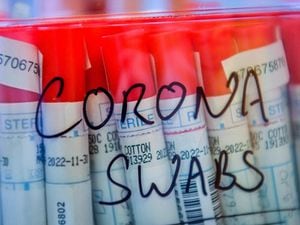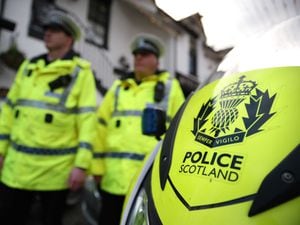Wales reaches 1,000 coronavirus deaths
The health minister Vaughan Gething warned transmissions would continue until a vaccine was developed or enough immunity was acquired.

More than 1,000 people have now died in Wales after testing positive for coronavirus, official figures show.
Health Minister Vaughan Gething used the milestone to ask the public to reflect on the “devastating grief” felt by families across the country.
He told a press conference in Cardiff that measures such as social distancing were helping to reduce the spread of Covid-19 but warned transmission would continue until a vaccine or immunity was developed.
Public Health Wales said on Tuesday that 1,023 people in Wales have died with the virus, an increase of 26 on Monday’s figures.

There are now 10,669 confirmed cases of coronavirus in the country.
Mr Gething told the Welsh Government’s daily press briefing: “Covid-19 has now taken over 1,000 lives in Wales.
“This isn’t just a number, but a sombre milestone, and a stark reminder of what we are collectively fighting for.
“Everything that we are doing, from social distancing and basic hygiene measures, is helping to reduce the spread of Covid-19 and prevent even more families from facing the devastating grief of losing a loved one.
“But we know that transmission of Covid-19 will continue until we have an effective vaccine, or there is enough acquired immunity in the population.
“We also now know that there are no simple solutions to the challenges that lie ahead. There are no quick fixes that will allow us to ease our restrictions quickly.”
Mr Gething said he was “absolutely confident” that more lives would have been lost if measures to reduce the spread of coronavirus had not been taken, and if the public had not supported and followed the rules.
He warned that the public health emergency, the scale of which had not been seen in peacetime before, would require “months more” of action from the Government, health service, social care and the public.

“We’re still in the middle of a fight that’s going to go on for months and months to come,” Mr Gething said.
He said the Welsh Government was “acutely aware” of the impact of the restrictions on the public, businesses and the economy.
Mr Gething described how a testing, tracking and tracing programme could be “pivotal” to when such measures could begin to be eased.
The plan will use digital technology and more traditional contact tracing methods involving a “large and dedicated workforce” to identify and contain the spread of Covid-19.
As part of the programme, some people could be asked to quarantine for 14 days on more than one occasion, Mr Gething warned.
On Monday, the Scottish Government said it hoped to have a testing and tracing system in place by the end of May, which would require an estimated 15,500 tests per day.
Mr Gething said Wales would need under 9,000 tests per day to carry out a similar strategy, acknowledging that it would have to “significantly increase” its current capacity of 2,100.

“I’m confident we’ll be at that sort of range before the end of May, when I’m looking for this plan to be ready for full roll-out across the country – if that is the point at which lockdown measures start to ease,” he said.
The Welsh Government also announced on Tuesday that a further 21,000 vulnerable people in Wales would receive a letter advising them to stay at home completely until at least June 15.
This brings the number of people being shielded in Wales to 121,000.
Mr Gething said that if schools were likely to reopen before June 15, consideration would be given to how children in shielding households received education.
He stressed schools would not reopen until it was “safe” for them to do so.
“We then have to think about what that means to the categories of people who can and can’t go out,” he said.
“If people are shielding we’ve got to think through how we support those children.”
He said there were alternative provisions for education and remote learning available across Wales.





